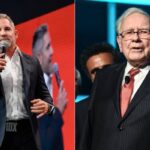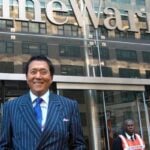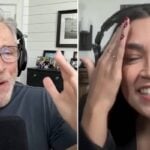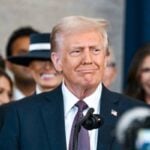We adhere to strict standards of editorial integrity to help you make decisions with confidence. Some or all links contained within this article are paid links.
The U.S. penny has been in circulation for more than two centuries, but its time may soon be up after President Donald Trump directed the Treasury Department to halt production of the one-cent coin.
“For far too long the United States has minted pennies which literally cost us more than 2 cents. This is so wasteful!” Trump wrote in a Truth Social post. “I have instructed my Secretary of the U.S. Treasury to stop producing new pennies. Let’s rip the waste out of our great nation’s budget, even if it’s a penny at a time.”
“Shark Tank” investor Kevin O’Leary agrees.
“[Trump] is right — it’s stupid,” O’Leary stated in a recent Fox Business interview. “Why would you pay two cents for a commodity that’s worth one? Who uses a penny anyways? Unless you’re putting them in your loafers, and nobody does that anymore, get rid of it. It’s useless.”
The high production cost makes a compelling case. According to the U.S. Mint — the Treasury bureau responsible for producing the nation’s coinage — each penny cost 3.69 cents to produce in fiscal 2024, more than three times its face value. That led to an $85.3 million loss on penny production for the year.
Pennies, loafers and the decline of the coin
O’Leary quipped that the only reasonable use for pennies today is putting them in your loafers — a nod to the once-popular fashion trend of tucking pennies into the slots of penny loafers.
But that tradition has largely faded, and not just because styles have changed. The real reason? Pennies have lost nearly all of their practical value due to inflation.
In the mid-20th century, a penny could buy small everyday items like a stick of gum or a piece of penny candy. Today, a single penny buys almost nothing on its own, and many vending machines and parking meters no longer accept them.
In the grand scheme of things, the penny’s fate is a reflection of the U.S. dollar’s diminishing purchasing power.
While the historic 9.1% inflation spike in June 2022 — the highest in 40 years — has since cooled, the cost of essentials like food and housing remains elevated. That means your pennies, nickels, dimes and even dollars don’t stretch nearly as far as they once did.
According to the Federal Reserve Bank of Minneapolis’ inflation calculator, $100 in 2024 has the same purchasing power as just $5.45 in 1924 — meaning the U.S. dollar has lost nearly 95% of its value over the past century.
One shiny alternative
If you’re someone who still loves mint — not the kind that churns out pennies, but the kind that produces real stores of value — there’s a shiny alternative worth considering: gold.
Unlike the penny, which has lost nearly all of its purchasing power, gold has helped people preserve wealth for centuries. The precious metal can’t be printed out of thin air like fiat money, and because it’s not directly tied to any single currency or economy, gold often acts as a "safe haven" asset, especially during periods of economic or geopolitical uncertainty.
To put the inflation calculator example into perspective, consider this: In 1924, an ounce of gold cost $20.69. Today, it’s worth over $2,800.
Economist Peter Schiff, known for predicting the 2008 financial crisis, believes this is just the beginning.
“If gold can go from $20 an ounce to $2,600 an ounce, it can go from $2,600 to $26,000, or even to $100,000,” he recently stated. “There’s no limit because, again, gold isn’t changing — it’s the value of the dollar that’s decreasing.”
These days, you don’t even have to go to a bullion shop to buy precious metals. There are plenty of online platforms that offer a wide selection of gold and silver bars and coins at fair pricing.
Additionally, you can combine the recession-resistant nature of gold with the tax benefits of an IRA by opening a gold IRA.
If you’d like to convert an existing IRA into a gold IRA, companies typically offer 100% free rollover. Others might offer free gold, silver or other metals up to a certain amount when you make a qualifying purchase.
You can check out our top picks for industry-leading companies offering gold IRAs.
Compare offers instantly and request a free information guide to help you understand how this type of investment could fit in your portfolio.
This article provides information only and should not be construed as advice. It is provided without warranty of any kind.






